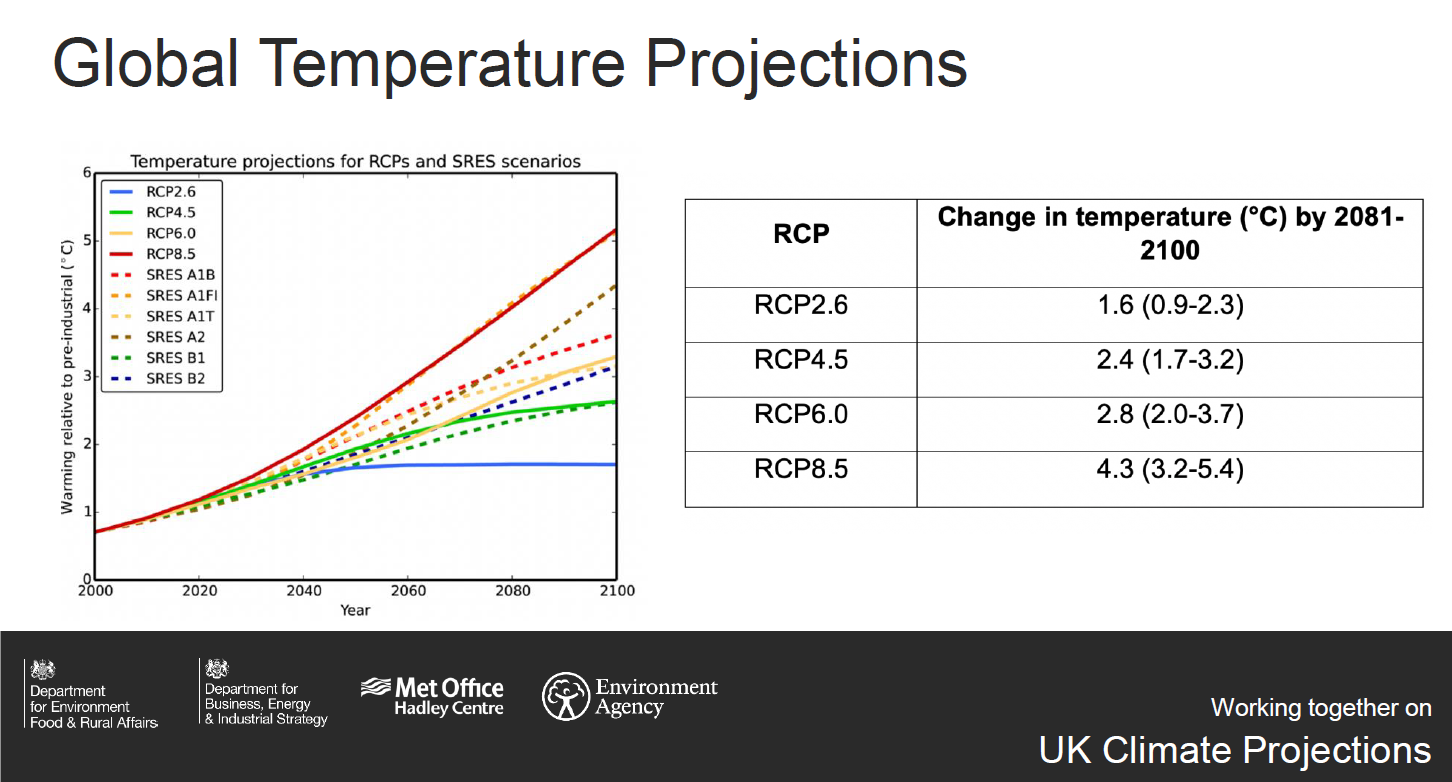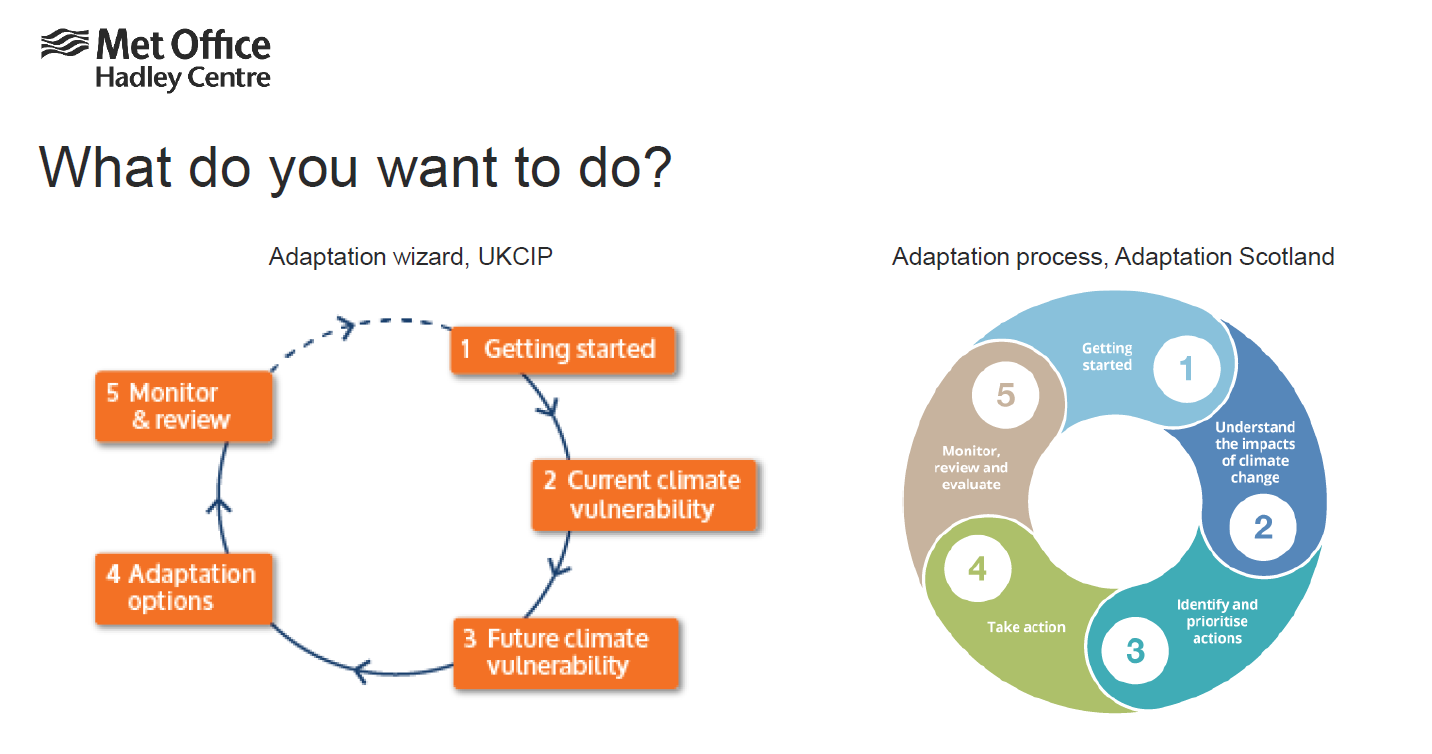Public consciousness about mitigating against climate change is at an all-time high, as extreme weather events become more common, Extinction Rebellion brings parts of London to a standstill, Greta Thunberg raises her voice above the noise, and the Committee on Climate Change maps our path to net zero by 2050.
But what are we going to do about the impacts that climate change is already having on our business operations, properties and land? How are those impacts going to change in the future? And what does a climate resilient organisation look like?
On 1st May, Fit for the Future partnered with the Met Office and the RSPB to try and answer some of these questions. Climate change adaptation is an increasingly important part of Fit for the Future’s work, as we support our members to think about and prepare for the impacts of climate change. Our event, held at the Met Office headquarters in Exeter, was an opportunity for members to look at the latest climate projections (UKCP18) produced by the Met Office, delve into the data for themselves, and start to think about how to develop an adaptation strategy armed with some of this knowledge. The event was attended by a diverse range of Fit for the Future members who manage a vast and varied portfolio of buildings and land. These members included the RNLI, Historic England, the Field Studies Council, the Forestry Commission and local authorities; proof that climate change is of significance to organisations of all types and sizes.
After a welcome from renowned Professor Peter Stott of the Met Office, Liz Bergere, Head of Climate Change Evidence & Analysis at DEFRA introduced our members to the policy context behind their adaptation approach and the latest climate projections.
But it was Dr Fai Fung, UKCP Climate Services Manager, who took us through the latest projections and provided our members with hands on training on the UKCP18 webpages and user interface so that they can access the data for themselves.

The projections highlight that our summers will become hotter and drier, our winters will become warmer and wetter, and there are regional variations across the UK. But what do we do with this data to make it relevant for our own organisations? Here is Dr Fung’s approach:
Using the climate projections
- Understand what you need from the data and what you are hoping to achieve – what does success look like? Take a step back before you dive in.
- Assess your current vulnerability to climate change, to see how you are already being affected
- Understand the future hazards you might face by conducting a high-level assessment of your risk
- Then go into more detail using the data to tackle the specific problems you have identified that your organisation faces

Developing an adaptation strategy
Olly Watts, Senior Climate Change Policy Officer at the RSPB then lead an interactive workshop to help members understand how to develop an adaptation strategy. Using the RSPB’s own successful framework, and one other example from a local authority, members identified a site, building or project that could be affected by climate change and tried to develop a strategic approach. This led to lots of interesting discussions and enabled our members to try using the data for themselves

Communicating adaptation
It was by no means an easy task for members to develop strategies around adaptation, given the complexity of the data, the individuality of every potential location and site, and the array of impacts that could be experienced.
But everyone in the room agreed that the lack of awareness of adaptation is a major stumbling block for delivering action. Few Chief Executives or senior teams are prepared to invest in uncertainties, so how do we encourage our organisations to take this seriously?
Perhaps Greta can be an example to us all. As Olly Watts closed his workshop, he affirmed the need to reach hearts over minds, to tell the human stories of climate change, and to find out what people care about before we even introduce the idea of climate change.
So there is a long way to go! But Fit for the Future members are working hard to find solutions, share knowledge and lead the way on ensuring their organisations become climate resilient. We will be following up this event in the coming months to support our members further in developing their strategies so keep an eye out on our events page.
To find out more about Fit for the Future and our work on adaptation, contact info@fftf.org.uk. Members can find the presentations from this event, along with links to guidance documents and more detailed notes by logging in to the members area.
Presentations, guidance and framework templates